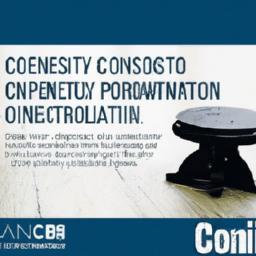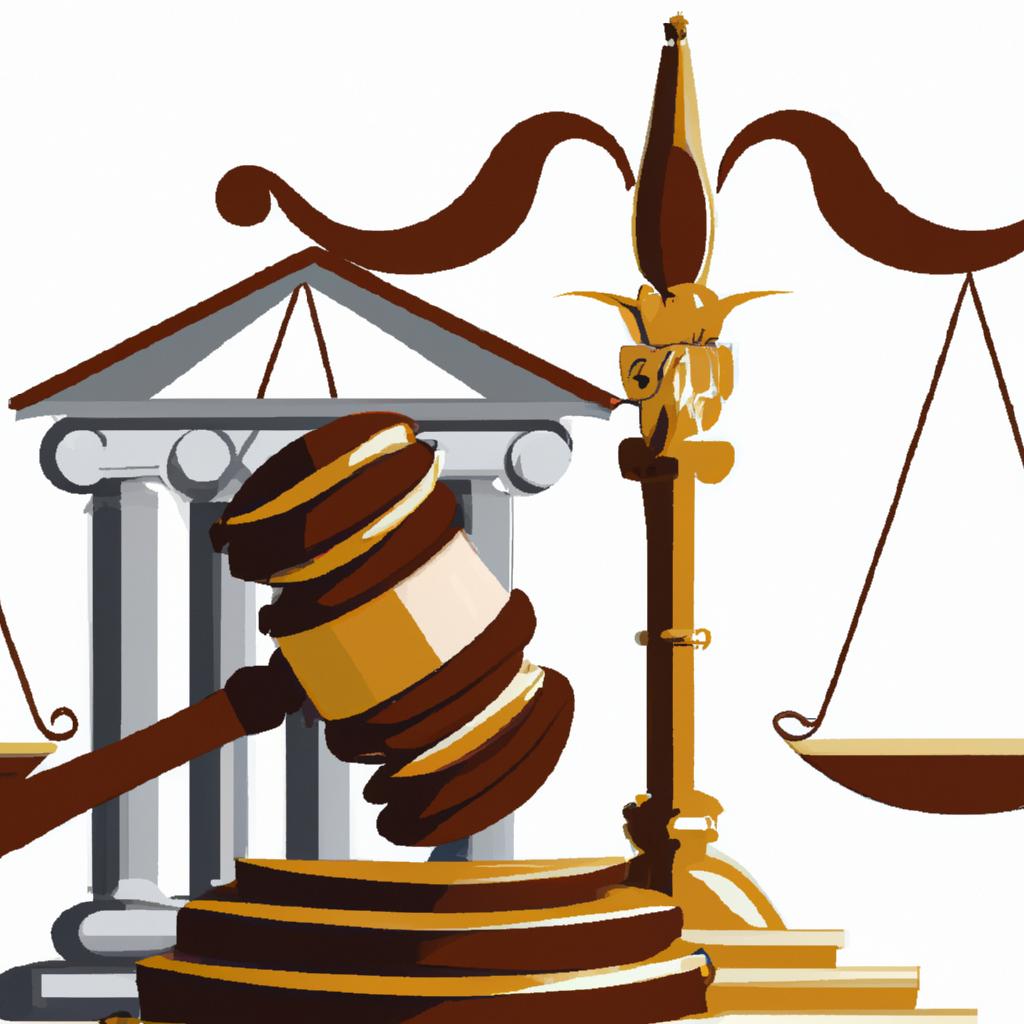As the population of older adults continues to grow in New York, the importance of understanding and navigating the complexities of elder law becomes increasingly essential. In this comprehensive overview, we will delve into the various aspects of elder law in New York, shedding light on key legal principles and procedures designed to protect and advocate for the rights of our elderly population. From estate planning to guardianship issues, our team at Morgan Legal Group, based in the heart of New York City, is dedicated to providing expert guidance and support in all matters related to elder law. Join us as we explore the intricate landscape of elder law in the Empire State.
Navigating the Complexities of Medicaid Planning for Long-Term Care in New York
In New York, navigating the complexities of Medicaid planning for long-term care can be a daunting task for many families. With constantly changing laws and regulations, it’s crucial to seek guidance from experienced elder law attorneys who specialize in this field. At Morgan Legal Group, our team has a deep understanding of the intricate details involved in Medicaid planning and can help you create a comprehensive strategy to protect your assets while ensuring you receive the care you need.
When it comes to elder law in New York, our firm is dedicated to providing personalized solutions tailored to meet the unique needs of each client. Whether you’re interested in creating a trust to protect your estate or need assistance with probate proceedings, our knowledgeable attorneys are here to guide you every step of the way. With years of experience navigating the legal landscape in New York, Morgan Legal Group is your trusted partner in securing a stable future for yourself and your loved ones.

Understanding the Role of Guardianship in Elder Law Proceedings
Elder law in New York encompasses a wide range of legal issues that affect the elderly population. One crucial aspect of elder law is guardianship, which plays a significant role in ensuring the well-being and protection of older individuals who may not be able to make decisions for themselves. Guardianship proceedings can be complex and involve various legal considerations that must be carefully navigated to safeguard the rights and interests of older adults.
is essential for anyone involved in caring for or advocating on behalf of older individuals. By appointing a guardian, the court can empower someone to make decisions regarding matters such as healthcare, living arrangements, and financial affairs for the incapacitated person. This legal arrangement is designed to protect the vulnerable elderly population and provide a framework for managing their affairs in their best interests.

Essential Estate Planning Strategies for Senior Citizens in New York
When it comes to estate planning for senior citizens in New York, there are several essential strategies that must be considered to ensure a smooth transition of assets and wealth. One crucial aspect of elder law in New York is establishing a comprehensive estate plan that includes a Will, Trust, Power of Attorney, and Healthcare Proxy. These legal documents will not only protect your interests but also provide guidance on how your assets should be distributed after your passing.
Additionally, it is important to consider long-term care planning as part of your estate plan. This may involve setting up a Medicaid Trust to protect your assets from being depleted due to nursing home or medical expenses. By working with an experienced elder law attorney, you can navigate the complexities of estate planning in New York and secure a stable future for yourself and your loved ones.

Securing Your Loved One’s Future: The Importance of Advanced Directives in Elder Law
When it comes to securing the future of your loved ones, advanced directives play a crucial role in elder law. These legal documents allow individuals to specify their healthcare preferences, designate a healthcare proxy, and outline their end-of-life wishes. By creating advanced directives, you can ensure that your wishes are honored and alleviate the burden on your family members during difficult times.
In New York, understanding the complexities of elder law is essential for protecting the rights and interests of seniors. From Medicaid planning to long-term care arrangements, navigating the legal landscape can be challenging. With the help of experienced elder law attorneys like Morgan Legal Group, you can ensure that your loved ones are well taken care of and that their future is secure.
Q&A
Q: What is elder law?
A: Elder law is a specialized area of legal practice that focuses on the unique needs and challenges faced by older adults.
Q: What types of legal issues does elder law address?
A: Elder law covers a wide range of legal issues, including estate planning, long-term care planning, guardianship, healthcare decision-making, retirement and pension benefits, elder abuse and neglect, and more.
Q: How does elder law differ from other areas of law?
A: Elder law is distinct from other areas of law in that it specifically addresses the legal issues affecting older adults, such as retirement planning and long-term care options.
Q: What are some common legal documents associated with elder law?
A: Common legal documents in elder law include wills, trusts, powers of attorney, advance directives, and healthcare proxies.
Q: How can an elder law attorney help older adults and their families?
A: An elder law attorney can help older adults and their families navigate the complexities of estate planning, long-term care planning, and other legal issues specific to aging populations. They can also provide guidance on Medicaid planning, elder abuse prevention, and more.
Q: What should older adults consider when seeking legal advice in New York?
A: Older adults in New York should seek legal advice from an attorney with experience in elder law who is knowledgeable about the state’s specific laws and regulations regarding aging and elderly individuals. It’s important to work with an attorney who understands the unique needs and concerns of older adults.
The Conclusion
In conclusion, understanding the complexities of elder law in New York is crucial for ensuring the well-being and protection of our aging population. By navigating the various legal issues and considerations that elders face, we can empower them to live their golden years with dignity and peace of mind. Whether it be estate planning, Medicaid eligibility, or guardianship proceedings, having a solid understanding of elder law can make all the difference in providing the support and advocacy our seniors deserve. Remember, knowledge is power, especially when it comes to caring for our elders in the great state of New York.
 Welcome to the world of elder law, a specialized field of law that focuses on legal issues affecting the aging population. As people age, they face unique challenges and needs that require legal protection and guidance. In New York, there is a specific set of laws and regulations in place to address these matters, known as elder law. In this article, we will provide a comprehensive overview of elder law in New York, highlighting its scope, benefits, and practical tips for those seeking legal assistance in this area.
Welcome to the world of elder law, a specialized field of law that focuses on legal issues affecting the aging population. As people age, they face unique challenges and needs that require legal protection and guidance. In New York, there is a specific set of laws and regulations in place to address these matters, known as elder law. In this article, we will provide a comprehensive overview of elder law in New York, highlighting its scope, benefits, and practical tips for those seeking legal assistance in this area.
Understanding Elder Law
Elder law is a vast and complex subject, covering a wide range of legal matters that pertain to senior citizens, individuals with disabilities, and their families. It encompasses various areas of law, such as estate planning, long-term care planning, guardianship, healthcare, and financial matters. The primary goal of elder law is to protect the rights and interests of older adults and vulnerable individuals and ensure that their wishes are respected and properly carried out.
In New York, elder law is governed by both federal and state laws. The New York State Department of Aging oversees the administration of programs and policies related to the elderly, while the US Administration on Aging provides grants and funding to support elder law services in the state. Additionally, there are several local agencies and organizations that offer legal assistance and support to older adults and their families.
Key Areas of Elder Law in New York
As mentioned earlier, elder law covers a broad spectrum of legal issues. Let’s take a closer look at some of the key areas of elder law in New York:
1. Estate Planning and Administration
Estate planning is an essential aspect of elder law in New York. It involves making decisions about how a person’s assets and property will be managed and distributed after their passing. Elder law attorneys can assist with drafting wills, setting up trusts, establishing powers of attorney, and handling other estate planning matters.
In the event of a loved one’s death, elder law attorneys can also guide families through the estate administration process, ensuring that the deceased’s wishes are carried out and all legal requirements are met.
2. Long-Term Care Planning
Long-term care planning is crucial for older adults who may require nursing home care or in-home assistance as they age. Elder law attorneys can help clients navigate through the complex rules and procedures of Medicaid and other benefit programs to ensure that they receive the necessary long-term care without exhausting their resources.
Long-term care planning may also involve setting up trusts or other legal instruments to protect assets and ensure that they are used for the person’s medical and financial needs.
3. Guardianship and Conservatorship
In situations where an individual is unable to make decisions for themselves due to incapacity or disability, a guardianship or conservatorship may be necessary. These legal arrangements allow someone else to make decisions on behalf of the incapacitated person, whether it be regarding their finances, healthcare, or personal affairs.
In New York, elder law attorneys can assist families in petitioning for guardianship or conservatorship and ensure that the best interests of the incapacitated person are upheld.
4. Healthcare and End-of-Life Planning
Elder law attorneys also play a vital role in helping clients plan for their healthcare needs and end-of-life wishes. They can assist with advance care planning, which involves creating documents such as a healthcare proxy and living will, to ensure that a person’s medical decisions are carried out according to their wishes.
Additionally, elder law attorneys can also help with selecting and organizing healthcare services and advocating for clients’ rights to quality care.
Practical Tips for Navigating Elder Law in New York
Dealing with legal matters can be overwhelming, especially for older adults and their families. Here are some practical tips to help you navigate the complexities of elder law in New York:
1. Don’t wait until it’s too late
Planning ahead is crucial when it comes to elder law matters. It’s never too early to start thinking about and preparing for your future, especially when it comes to estate planning and long-term care planning.
2. Seek legal assistance from an experienced elder law attorney
Elder law is a specialized field, and not all attorneys have the expertise and knowledge to handle these types of cases. It’s essential to choose an attorney who has experience and a proven track record in dealing with elder law matters in New York.
3. Be open and honest with your attorney
Elder law attorneys are bound by confidentiality laws and are there to protect your best interests. It’s crucial to be open and honest with your attorney about your goals, concerns, and financial situation so they can provide the best possible guidance and support.
4. Stay informed and educated
As laws and regulations surrounding elder law are constantly changing, it’s essential to stay informed and educated about your rights and options. Regularly check in with your attorney to stay updated and informed about any changes that may impact your legal matters.
The Benefits of Elder Law for New Yorkers
Elder law provides a wide range of benefits to older adults and their families in New York. It offers legal protection, guidance, and support for some of the most vulnerable members of our society, ensuring that their rights are protected, and their wishes are respected. By planning ahead and seeking legal assistance from qualified elder law attorneys, individuals and families can have peace of mind knowing that their future is secure and their interests are well taken care of.
Final Thoughts
In conclusion, elder law is a vital area of law that provides essential protections and support for older adults and those with disabilities in New York. From estate planning to long-term care planning and healthcare advocacy, elder law attorneys play a crucial role in helping clients navigate through the complexities of legal matters in their later years. By staying informed, seeking legal assistance, and planning ahead, individuals and families can ensure that their wishes are honored and their rights are upheld.

